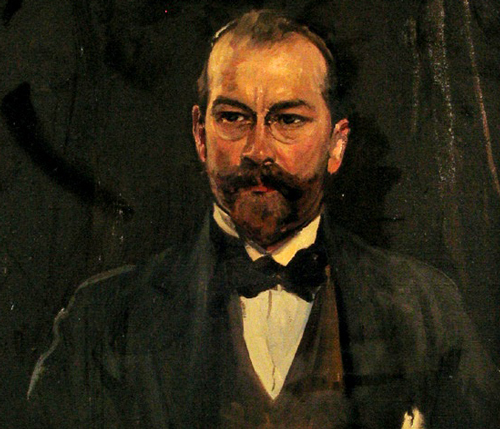Removing king from Irish constitution would be an invitation to declare a republic
Dublin, 27 September 1922 – As Dáil Éireann continues to debate the new Irish constitution, a proposal to remove a reference to the king has been defeated due to it being in breach of the terms of the Anglo-Irish Treaty.
The proposal came in the form of an amendment to Article 12 of the proposed constitution which was tabled by George Gavan Duffy, a signatory of the Anglo-Irish treaty, who claimed that the issue was not so much one of leaving the king out of the constitution as ‘putting him in his proper place’.
Kevin O’Higgins, Minister for Home Affairs, did not agree. He countered that what was being proposed in the amendment to Article 12 was tantamount to an invitation to declare a republic and he reminded deputies that they were duty-bound to work out a constitution within the framework of the treaty signed in London last December and ratified by the Dáil in January.
The previous day, O’Higgins acknowledged that the treaty had been signed under duress but he argued that this didn’t alter the realities with which they were now confronted. ‘Undoubtedly there was duress on the facts; undoubtedly the big stick was there’, he remarked.
‘The fact that war stood as an alternative is undeniable – the fact was that war was explicitly presented as an alternative to one of the signatories. If that is so it does not alter the situation one way or another... Facing the facts as we know them today, I say that the Irish people have consented to accept this treaty, and, until it is repudiated by the majority of the people, it stands, and must stand, as the national policy.’
According to O’Higgins, standing by the treaty unfortunately meant standing by the text of Article 12, which read:
‘A Legislature is hereby created to be known as Parliament of the Irish Free State/Oireachtas. It shall consist of the King and two Houses; the Chamber of Deputies/Dáil Éireann and the Senate/ Seanad Eireann. The power of making laws for the peace, order and good government of the Irish Free State/Saorstát Éireann is vested in the Parliament/Oireachtas.’
Mr Gavan Duffy rejected the view that inserting the reference to the king was a necessary part of the contract made with the British government and his motion to delete was supported by Labour members of the Dáil, whose Carlow-Kilkenny TD, Patrick Gaffney, urged the creation of a workers’ republic, and whose Louth-Meath TD, Cathal O’Shannon, advocated for a single chamber government. Mr O’Shannon said that he opposed a second chamber in principle and opposed the inclusion of reference to the king on the grounds that he didn’t want anyone to be a member of the Oireachtas who is ‘not a reality, who is not going to come in and do some work.’
Despite Labour’s support the amendment was defeated by a margin of 27 votes – 43 to 16.
The second reading of the constitution bill began on 20 September. During his speech, Kevin O’Higgins paid personal tribute to the signatories of the Anglo-Irish treaty which had given rise to the constitution they were now considering.
Two of those signatories – Arthur Griffith and Michael Collins – were now dead, but Mr O’Higgins declared that ‘they never did a bigger and braver and more selfless thing for the Irish nation than when they took the pen in hand and signed that treaty.’

Kevin O’Higgins, pictured with Michael Collins and Éamonn Duggan after the handover of Dublin Castle in January 1922
[Editor's note: This is an article from Century Ireland, a fortnightly online newspaper, written from the perspective of a journalist 100 years ago, based on news reports of the time.]





















